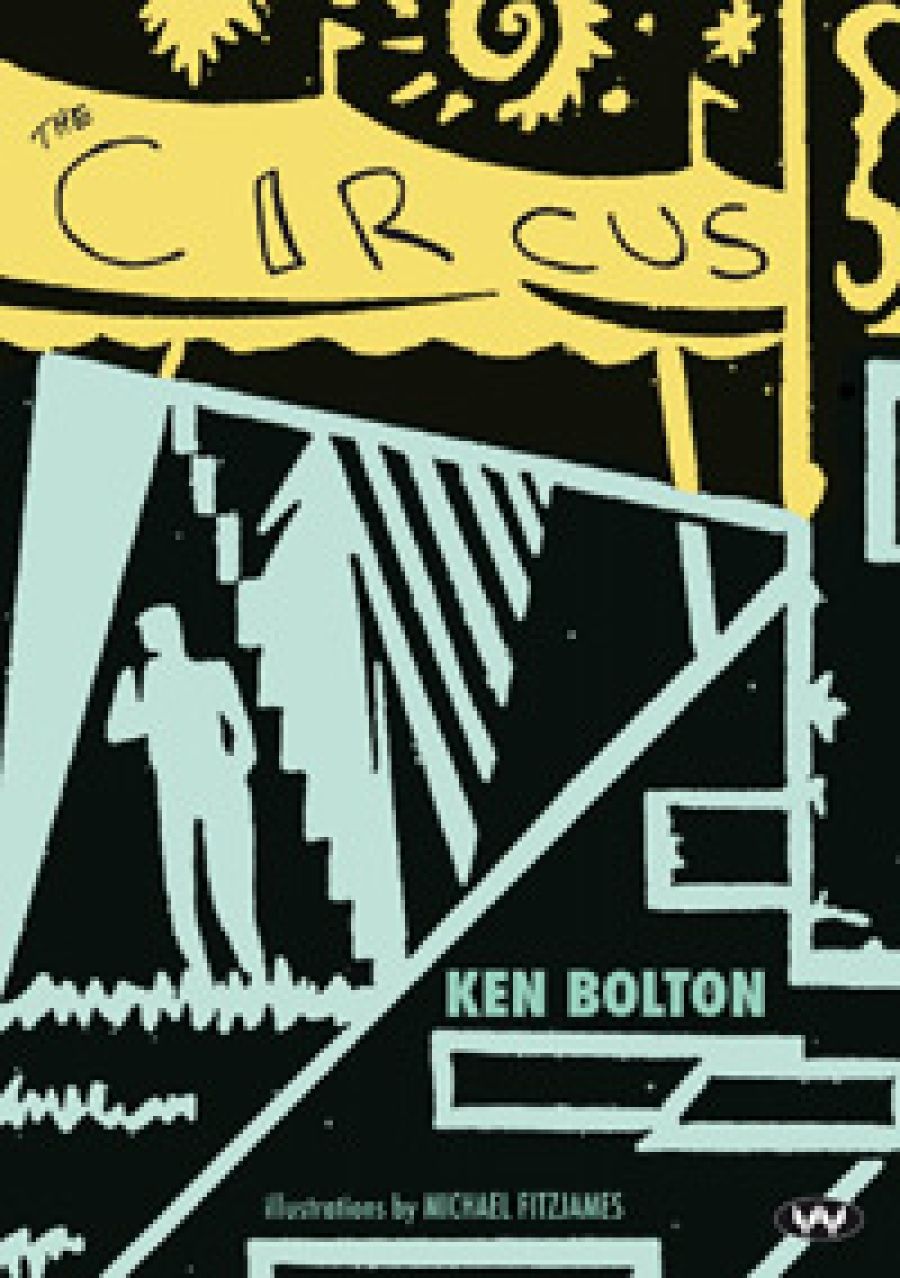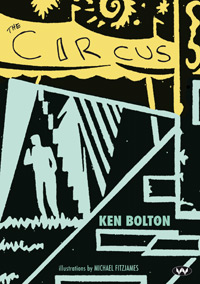
- Free Article: No
- Contents Category: Poetry
- Review Article: Yes
- Article Title: Reinventions
- Online Only: No
- Custom Highlight Text:
Mid-career reinvention is an exciting thing. Ken Bolton’s poem ‘Outdoor Pig-Keeping, 1954 & My Other Books on Farming Pigs’, in Black Inc.’s The Best Australian Poems 2009, was the most surprising poem in the book. Where were the friends, artists and cafés? Where were the small ironies? A larger irony was at work. Bolton’s new book, The Circus, is something else again: a wry, sly and affectionate long poem nothing like Frank O’Hara – generally seen as Bolton’s guiding influence – and not much like Bolton’s Australian peers either. While much of Bolton’s poetry relies on a bemused first-person narration, relentlessly questioning what a poem or even a thought can do, The Circus is narrated in a shifting third person. It makes quite a difference.
- Book 1 Title: The Circus
- Book 1 Biblio: Wakefield Press, $19.95 pb, 100 pp
- Book 1 Cover Small (400 x 600):

There are traces of Bolton’s earlier work. Michael Grimm is a ‘nut’ (‘Hindley Street Today, With a View of Michael Grimm’) in At The Flash & At The Baci (2006); in The Circus, a character with this name is a ‘Man of Strength, Man of Wonder’, from New Zealand, who has left the circus, but is still gossiped about by the other circus members. This is an in-joke. Google ‘Michael Grimm’ and you risk becoming networked with a professor at the University of New South Wales – or becoming a fan of a Californian singer-songwriter. But then I noticed that Michael Grimm designed At The Flash.
Another recycling is the Ted Berrigan quote, ‘Is there room in the room that you room in?’: one that Berrigan uses in The Sonnets (1982), in both ‘I’ and ‘LXIV’, and elsewhere. Laurie Duggan quotes it in Ghost Nation (2001), and I’m pretty sure Bolton has used it before. In The Circus, it becomes a line in a song sung by an elephant in a dream. You might think the line belongs to the song on the following page, Sam Cooke’s ‘Sad Mood’. It doesn’t. But don’t get the idea The Circus is a big tissue of quotation posing as a satirical portrait of modern life: it’s not.
The poem begins with the circus foreman worrying about the scarcity of tent pegs: ‘Do people eat them?’ (missing pegs are a recurring theme). It reads like the scene-setting of a feature article: a fictional device used by non-fiction writers. Bolton swiftly moves through several characters, occasionally giving something of their thoughts: the jugglers, the strong man (Ulysse, who wonders at the suitability of his name), the pizza man, the cat. The latter is the first clue that this is not going to be just a story or long group portrait of Italian circus folk (the scene is ‘near Trieste’). Bolton writes, ‘The cat is no part of the circus. / It comes from a nearby service station. / And is here to observe.’
This is subtle compared to the shocking entry of the elephant. The preceding stanza describes the drying clothes of the impressionist (‘the spotted cravats he wears’), then:
If some dumb bastard has given me AIDS, says the elephant
Wiggling his foot ... if I can even get AIDS ... The hypodermic
Drops off ... He finishes his sentence happily, I’ll be upset alright.
This elephant has a lot to live for.
The elephant then starts singing Joe Turner. A later entry of this elephant proceeds from a description of a woman smoking, then: ‘Why here? he thinks. It’s beginning to look like I’m a drug addict.’ The elephant is a key character, but isn’t included in the book’s ‘Character List’ (the less significant monkeys and ponies are).
All poetry is filmic; we’ve taken the cinema into our reading. The Circus repeatedly shifts perspective, suddenly but not jarringly: think perhaps of an Altman film edited by Rohmer. The fun that Bolton has with this shifting involves changing from human to animal on the basis of a pronoun; or using the documentary-descriptive to move to a sex scene: ‘In the dancer’s caravan Regina Xo is naked astride a man. It is Giorgio / Verzotti, Olivia’s fiancée.’ The Circus isn’t a soap, however. It is not even as comic as it might appear from quotes. It is rather steadfast narration, streaming out like a rubber river, incorporating narration by the characters – with jokes and allusions (to music, movies, television), but only as jokes and allusions are part of verbal life.
All poetry is realistic, inasmuch as it represents the real: a more raw vision is just someone else’s vision. And if this ‘reality’ features elephants singing soul and reflecting on television, this fits in with our experience of seeing similar things on Sesame Street, for example. It is not necessarily whimsical. Bolton elegantly disdains strictures on representation of the (animal) other, for something gentler and more sympathetic: ‘As the large mouse [clown, Julie Caniglia, in costume] makes its way one night – / ... She is spied by a real mouse and cat. / Neither identifies her for even a moment as a mouse – ...’ Moments like these are wonderful and original – but when the elephant reflects on philosophy, it seems too close to J.S. Harry territory.
It is not all animals, though. And it’s not even all words: Michael Fitzjames’s black-and-white illustrations add an extra tone to The Circus, an extra layer of reality. Illustrations emphasise that the purpose of words isn’t merely to create images. What words can do can be a life’s adventure; which is what Bolton is having in The Circus.


Comments powered by CComment